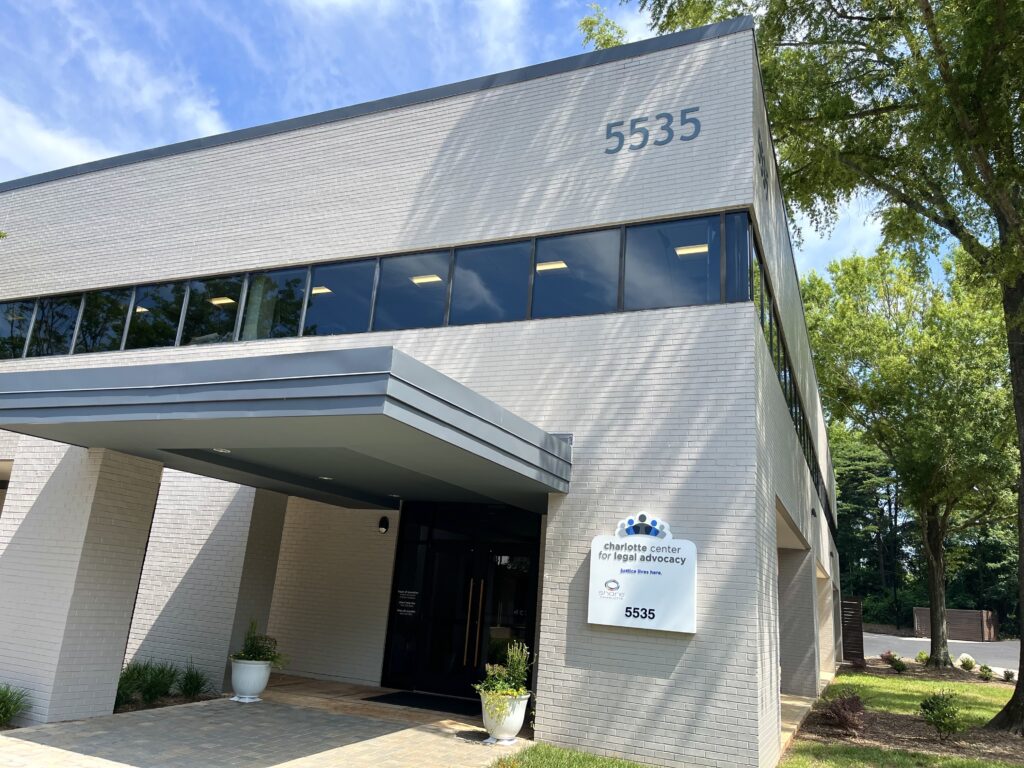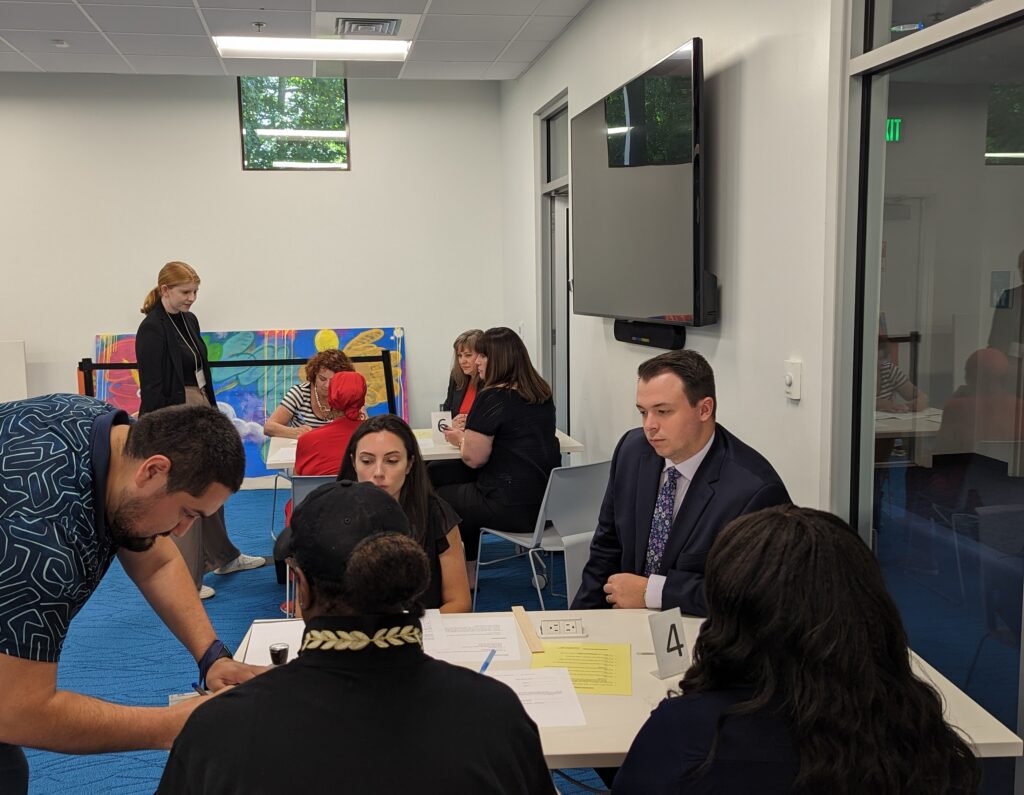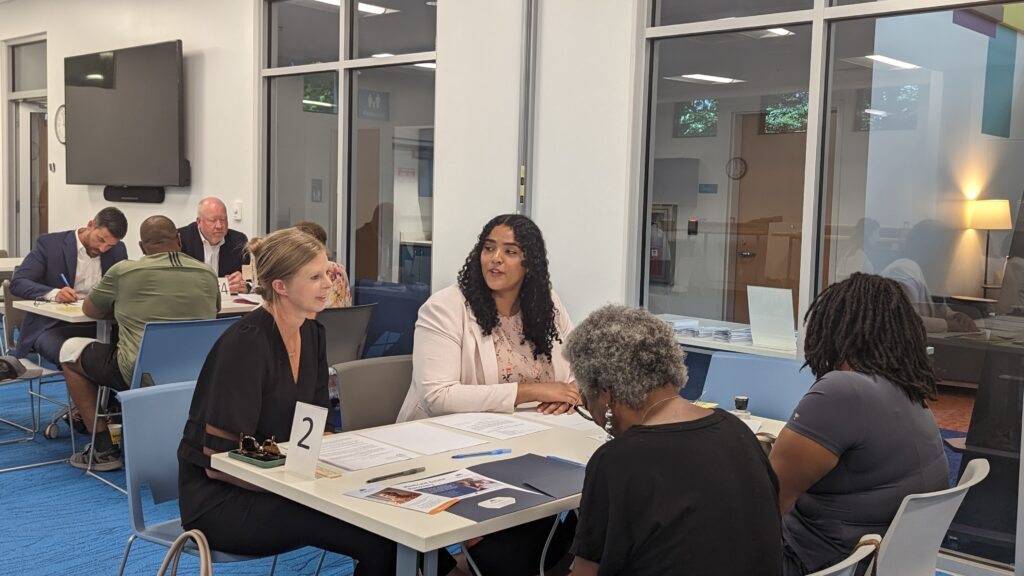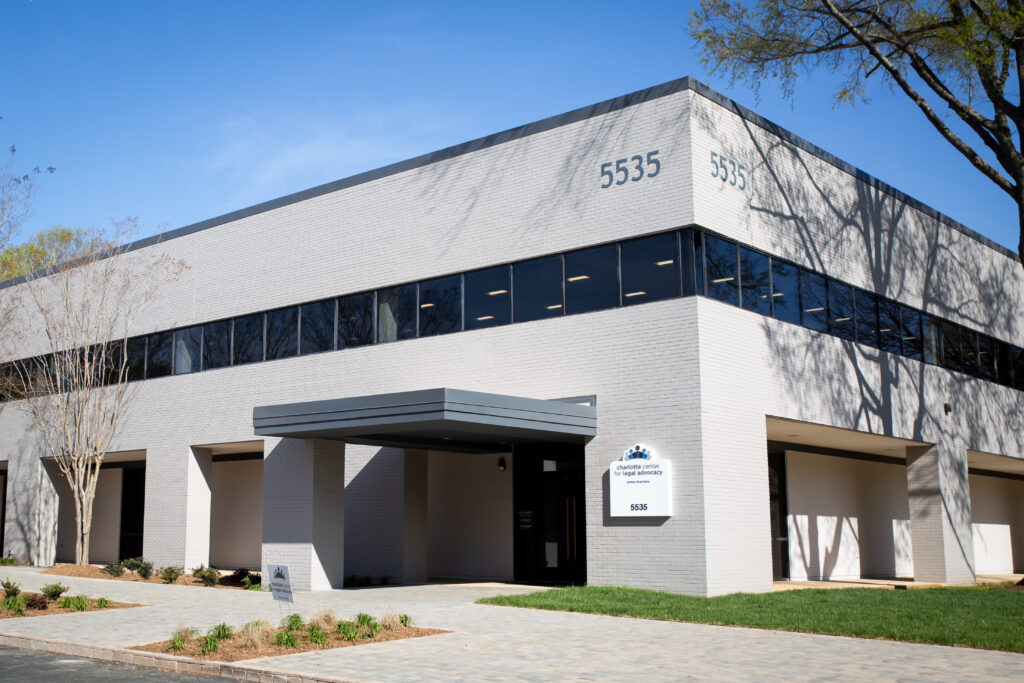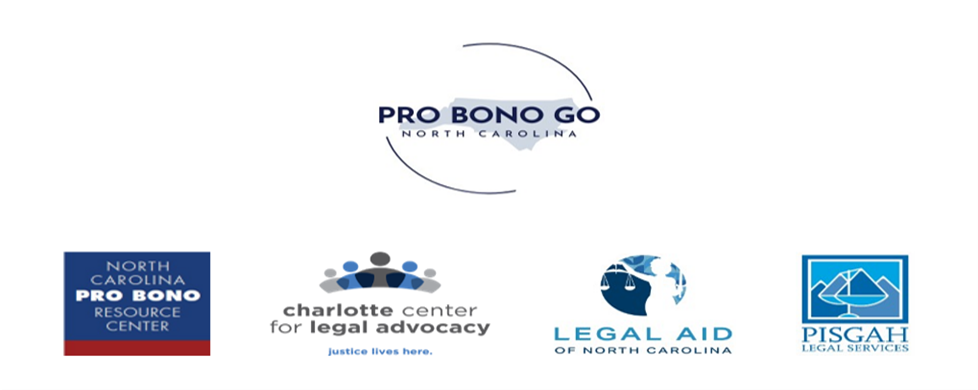
Visit ProBonoGo.org to browse pro bono opportunities and set up customized email alerts
North Carolina’s civil justice community is kicking off this year’s National Celebration of Pro Bono by launching Pro Bono Go, a statewide platform for legal professionals seeking pro bono service that makes a meaningful difference in the lives of North Carolinians in need.
Created by the North Carolina Pro Bono Resource Center in partnership with Charlotte Center for Legal Advocacy, Legal Aid of North Carolina and Pisgah Legal Services, Pro Bono Go is a new online clearinghouse of pro bono opportunities provided by the state’s leading civil legal aid and public-interest legal organizations.
Pro Bono Go allows legal professionals to visit one website to find pro bono opportunities from the state’s leading civil justice organizations. Volunteers can search and filter opportunities by keyword, location, practice area, type (ex: cases, clinics, etc.), and sponsor organization. Volunteers can also set up customized email alerts when new opportunities matching their preferences hit the site. Volunteers do not need to create an account and never have to remember a password.
Pro Bono Go uses the Pro Bono Matters software created by SavvySuit, a Florida-based software development company that builds access to justice software and products for the private bar.
About Charlotte Center for Legal Advocacy
Charlotte Center for Legal Advocacy provides those in need with information, advice and advocacy in consumer protection, home preservation, health care access and public benefits, immigration, tax assistance and more. Our mission is to pursue justice for those in need. Our vision is to build a just community, where all people are treated fairly and have access to legal representation to meet their basic human needs of safety, economic security, and stability. Learn more: charlottelegaladvocacy.org
Visit our Media Center Hub
The Media Center Hub serves as a centralized platform to access our press releases and other relevant resources. It is designed to provide you with easy and convenient access to the information you need to create compelling stories about our organization. To explore the Media Center Hub, visit here.
